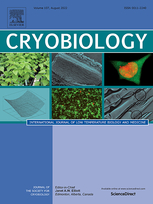
Réponse thermique et hémodynamique à la cryostimulation du corps entier de sujets en bonne santé.
Thermal and hemodynamic response to whole-body cryostimulation in healthy subjects.
Auteurs : ZALEWSKI P., KLAWE J. J., PAWLAK J., et al.
Type d'article : Article
Résumé
Whole-body cryotherapy (WBC) is an increasing applied cryotherapeutic method, that involves application of a cryotherapeutic factor to stimulate the body by the means of intense hypothermia of virtually the body’s entire area. This method is still not well recognized in Western Europe. However in recent years it is becoming increasingly popular in sports medicine and also in clinical application. Cryotherapeutic agents used in WBC are considered to be a strong stress stimulus which is associated with a variety of changes in functional parameters, particularly of the cardiovascular and autonomic nervous systems. However, such strong influence upon the entire body could be associated with the risk of unexpected reactions which might be dangerous for homeostasis. The present study evaluated the complex hemodynamic physiological reactions in response to WBC exposure in healthy subjects. Thirty healthy male volunteers participated. Each subject was exposed to WBC (-120°C) for 3-min. None of the participants had been exposed to such conditions previously. The research was conducted with modern and reliable measurements techniques, which assessed complex hemodynamic reactions and skin temperature changes non-invasively. All measurements were performed four times (before WBC, after WBC, WBC + 3 h and WBC + 6 h) with a Task Force Monitor (TFM – CNSystems, Medizintechnik, Gratz, Austria). Body superficial temperature was measured by infrared thermographic techniques – infra-red camera Flir P640 (Flir Systems Inc., Sweden). Our results show a significant decrease in heart rate, cardiac output, and increase in stroke volume, total peripheral resistance and baroreceptors reflex sensitivity. These changes were observed just after WBC exposure. At stages WBC + 3 h and WBC + 6 h there was observed a significant drop in baroreceptors reflex sensitivity due to increased thermogenesis. In conclusion, the present findings suggest that WBC strongly stimulates the baroreceptor cardiac reflex in response to body fluid changes which sequentially modulate HR and BP control in supine and resting healthy subjects. The study was performed on randomized and homogenic group of young healthy subjects. Our findings are important for WBC safety determination in research and clinical studies.
Détails
- Titre original : Thermal and hemodynamic response to whole-body cryostimulation in healthy subjects.
- Identifiant de la fiche : 30013391
- Langues : Anglais
- Source : Cryobiology - vol. 66 - n. 3
- Date d'édition : 06/2013
- DOI : http://dx.doi.org/10.1016/j.cryobiol.2013.03.006
Liens
Voir d'autres articles du même numéro (5)
Voir la source
Indexation
- Thèmes : Cryomédecine et cryochirurgie
- Mots-clés : Cryothérapie; Mesure; Système sanguin; Hypothermie; Homme
-
Hémorrhoïdectomie combinée avec la cryothérapie.
- Auteurs : KAGAWA R., NAKAYAMA N., YAMAGUCHI T., et al.
- Date : 03/2002
- Langues : Japonais
- Source : Low Temperature Medicine - vol. 28 - n. 1
Voir la fiche
-
Freezing without surrounding the cryomedium pre...
- Auteurs : MÜLLER-SCHWEINITZER E., GRAPOW M., KONERDING M. A., et al.
- Date : 08/2005
- Langues : Anglais
- Source : Cryobiology - vol. 51 - n. 1
Voir la fiche
-
An in vitro study of cryopreserved and fresh hu...
- Auteurs : ARMENTANO R. L., BIA-SANTANA D., CABRERA-FISHER E., et al.
- Date : 02/2006
- Langues : Anglais
- Source : Cryobiology - vol. 52 - n. 1
Voir la fiche
-
Applications for cryopreserved blood vessels in...
- Auteurs : MULLER-SCHWEINITZER E.
- Date : 02/1994
- Langues : Anglais
- Source : Cryobiology - vol. 31 - n. 1
Voir la fiche
-
LE COMPORTEMENT FONCTIONNEL DE LA CIRCULATION T...
- Auteurs : ERNST F. D., KNOCH H. G.
- Date : 1979
- Langues : Allemand
- Source : Z. exp. Chir. - vol. 12 - n. 3
Voir la fiche
